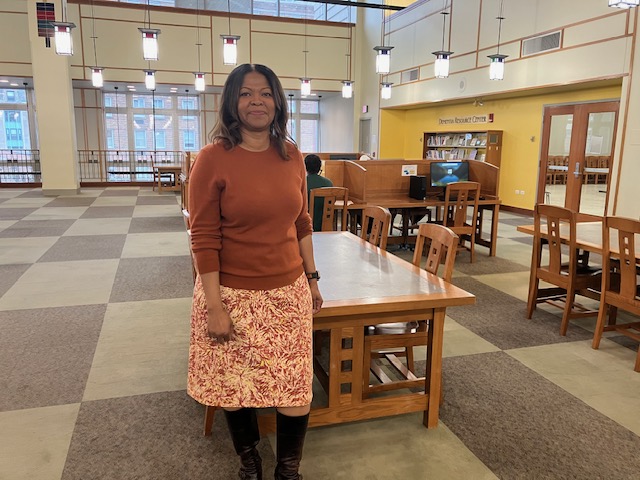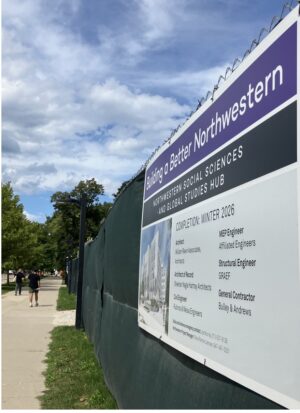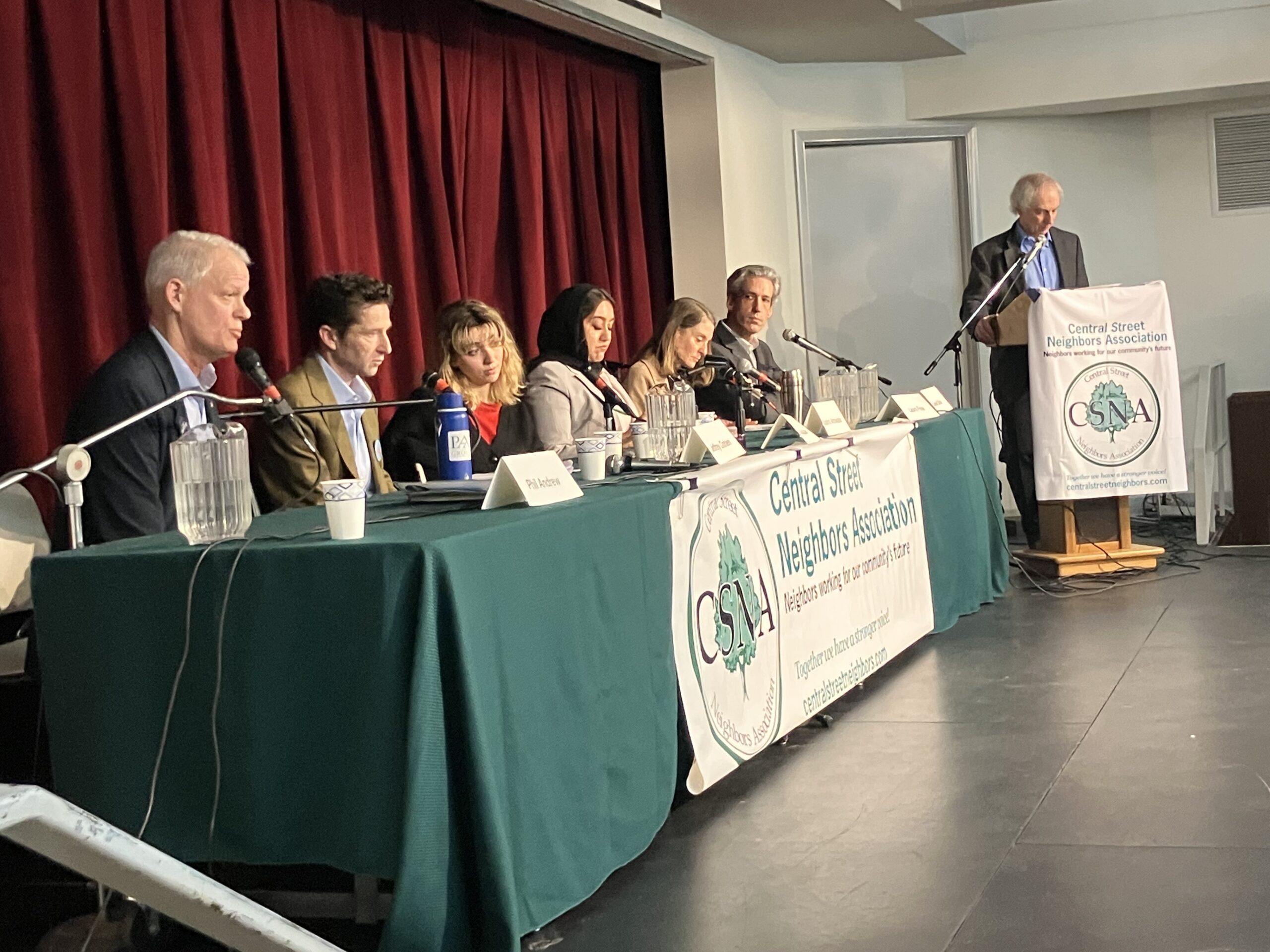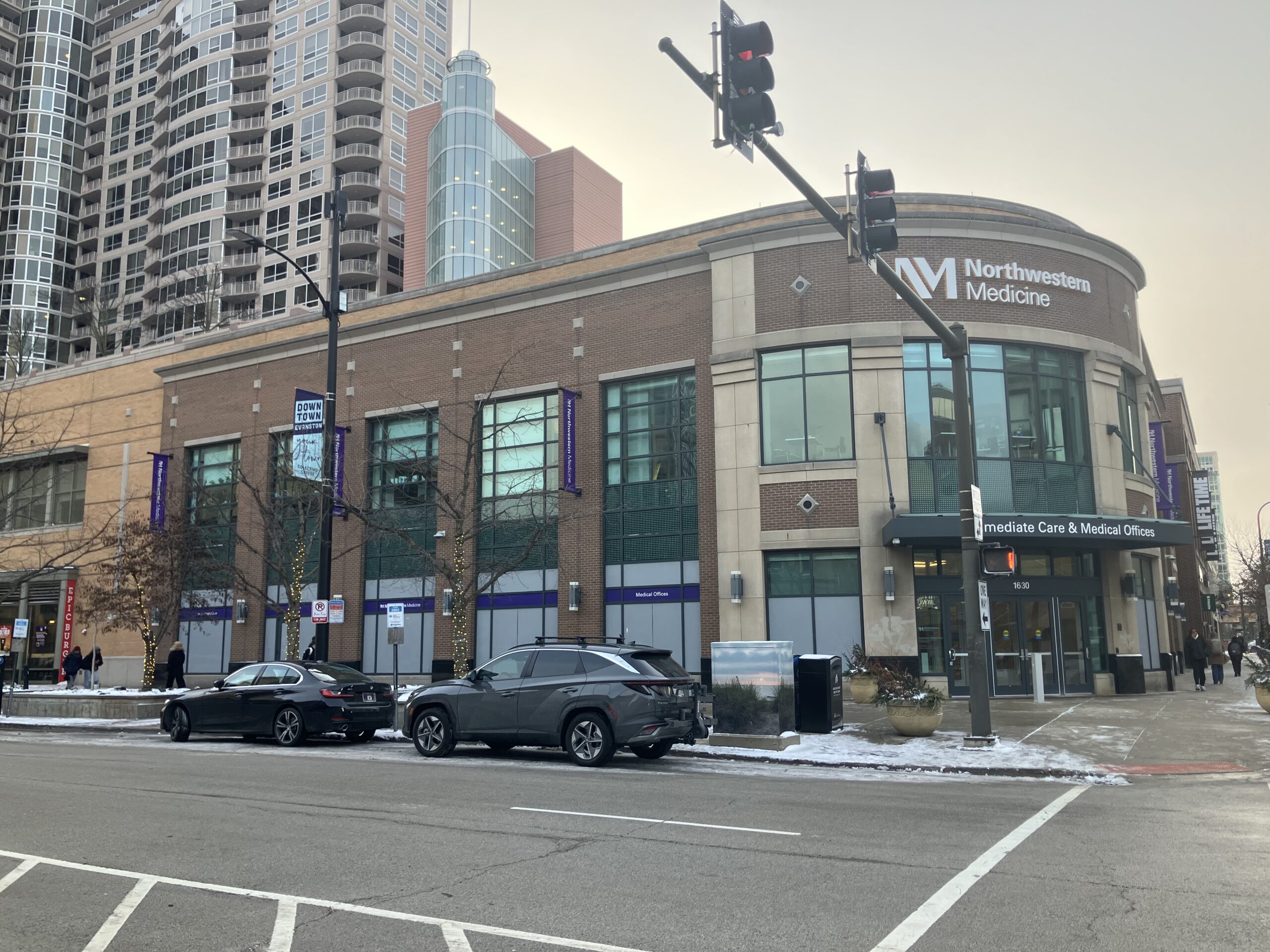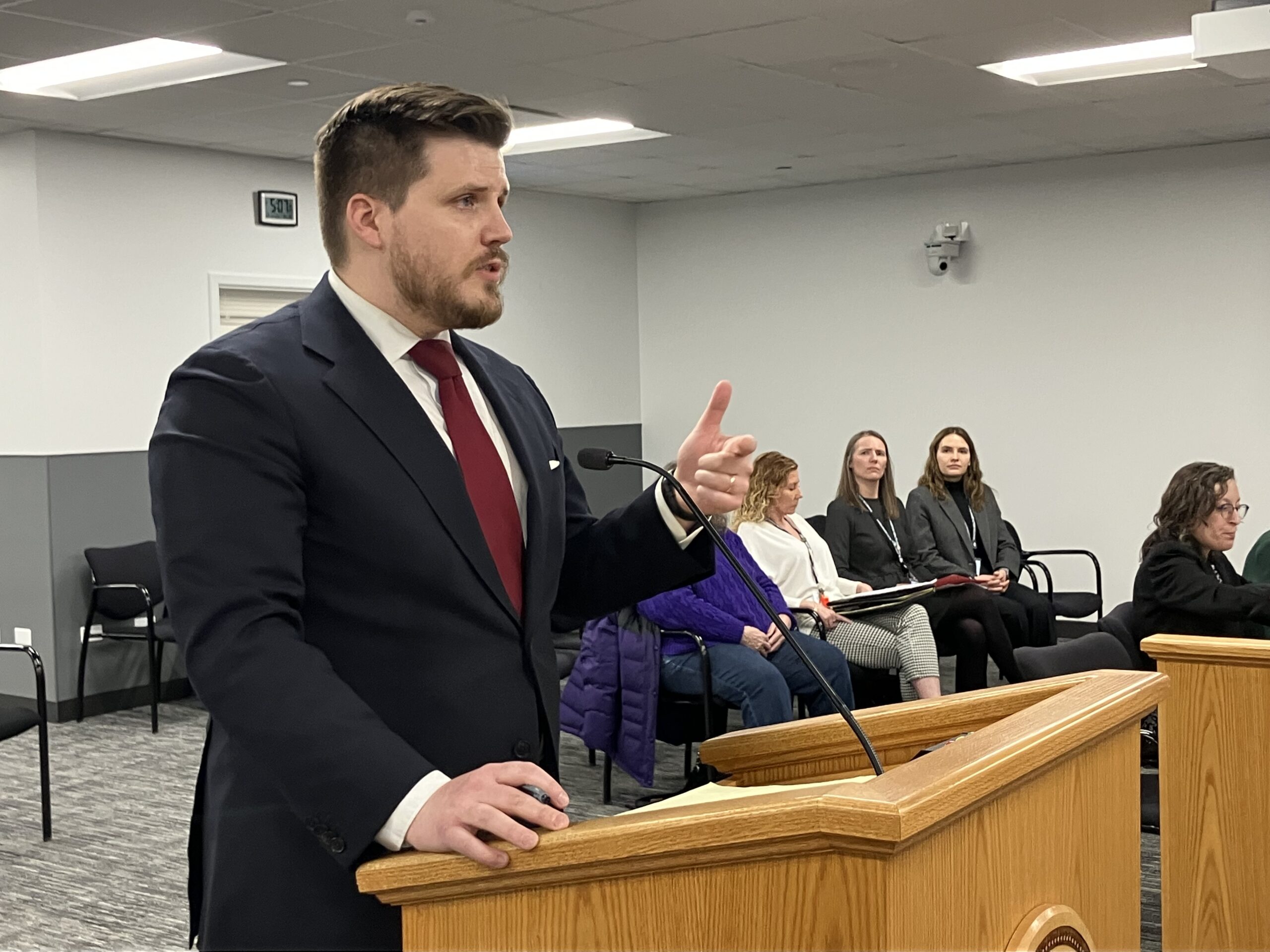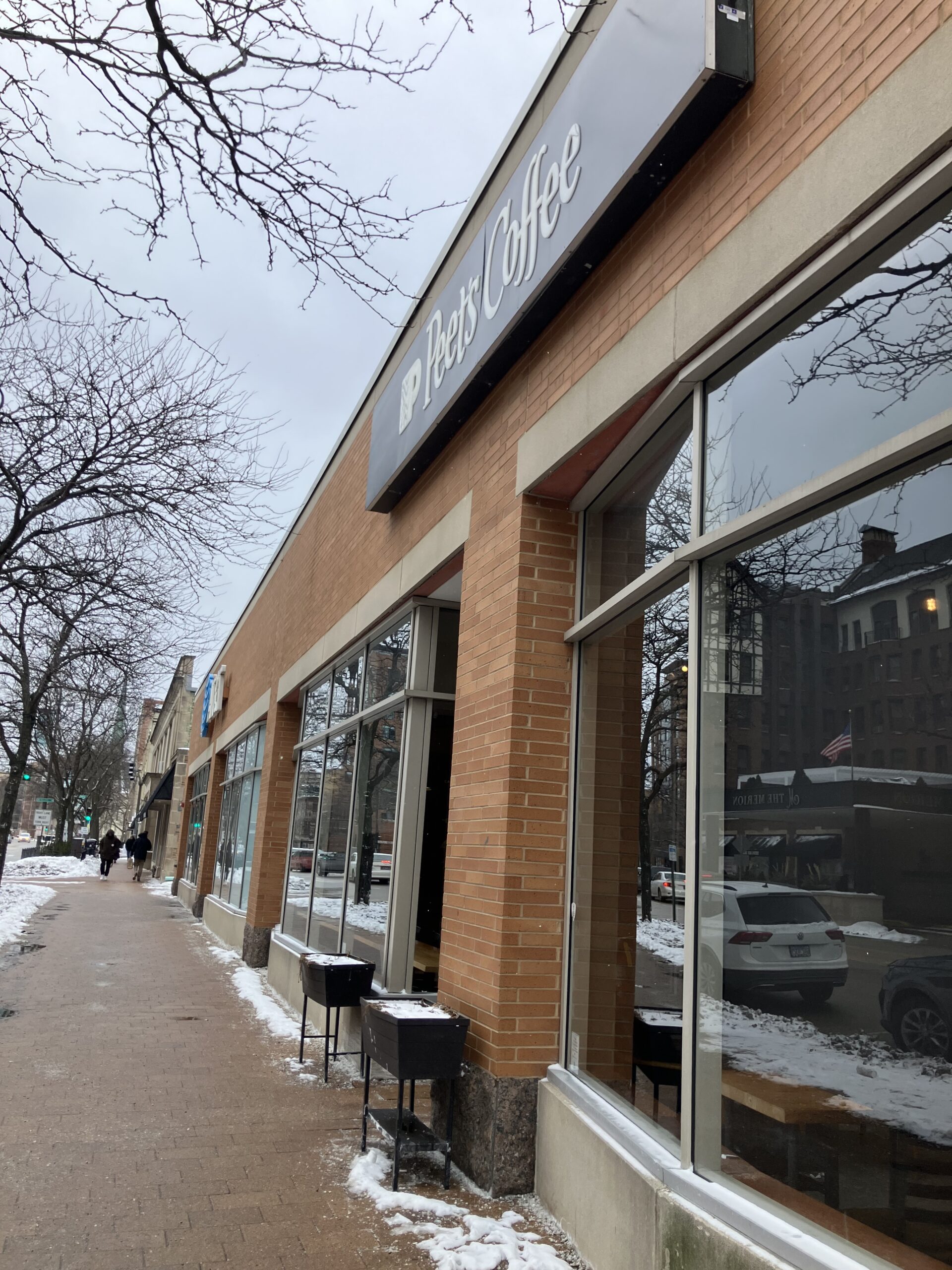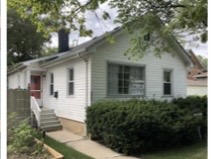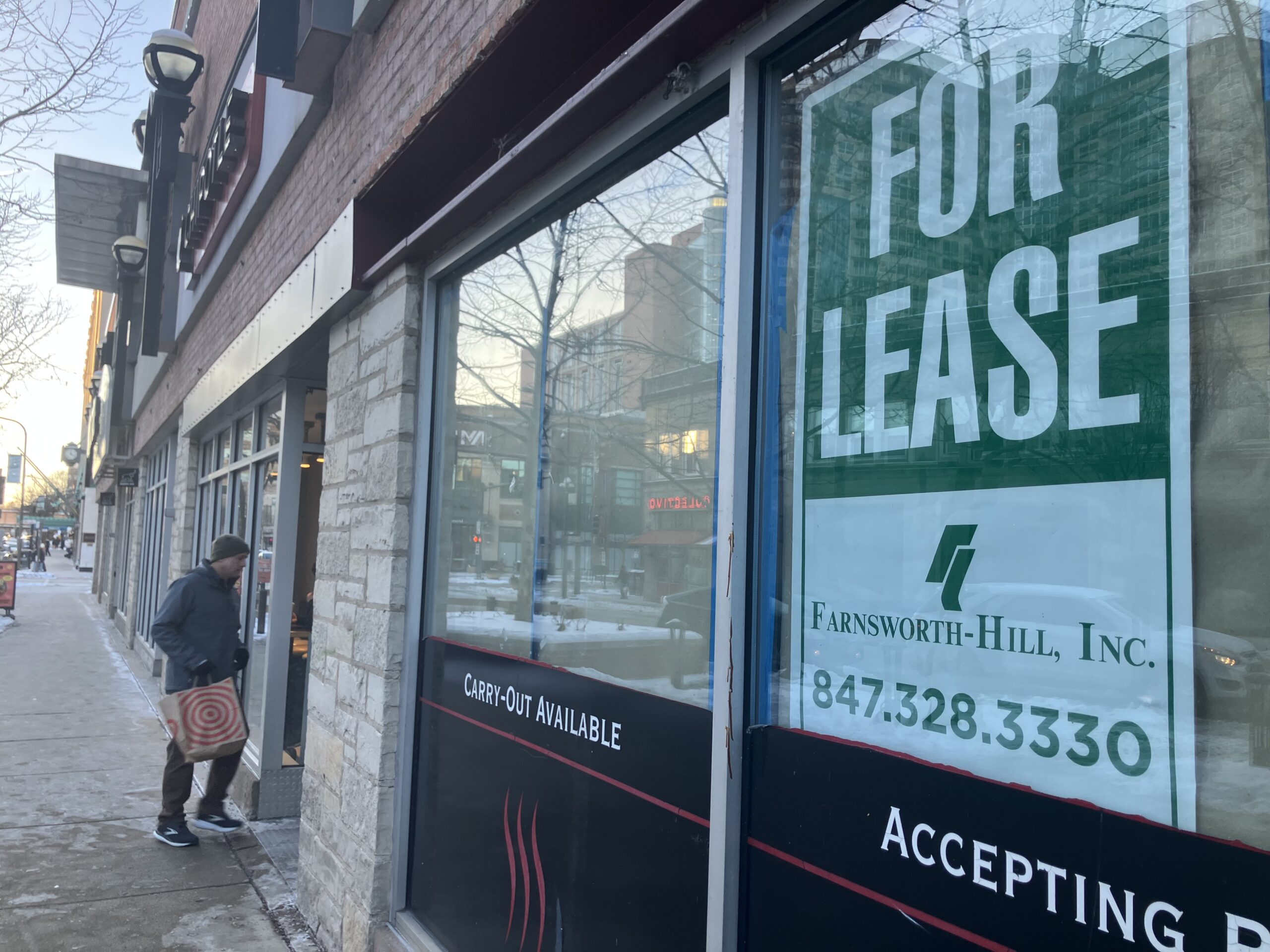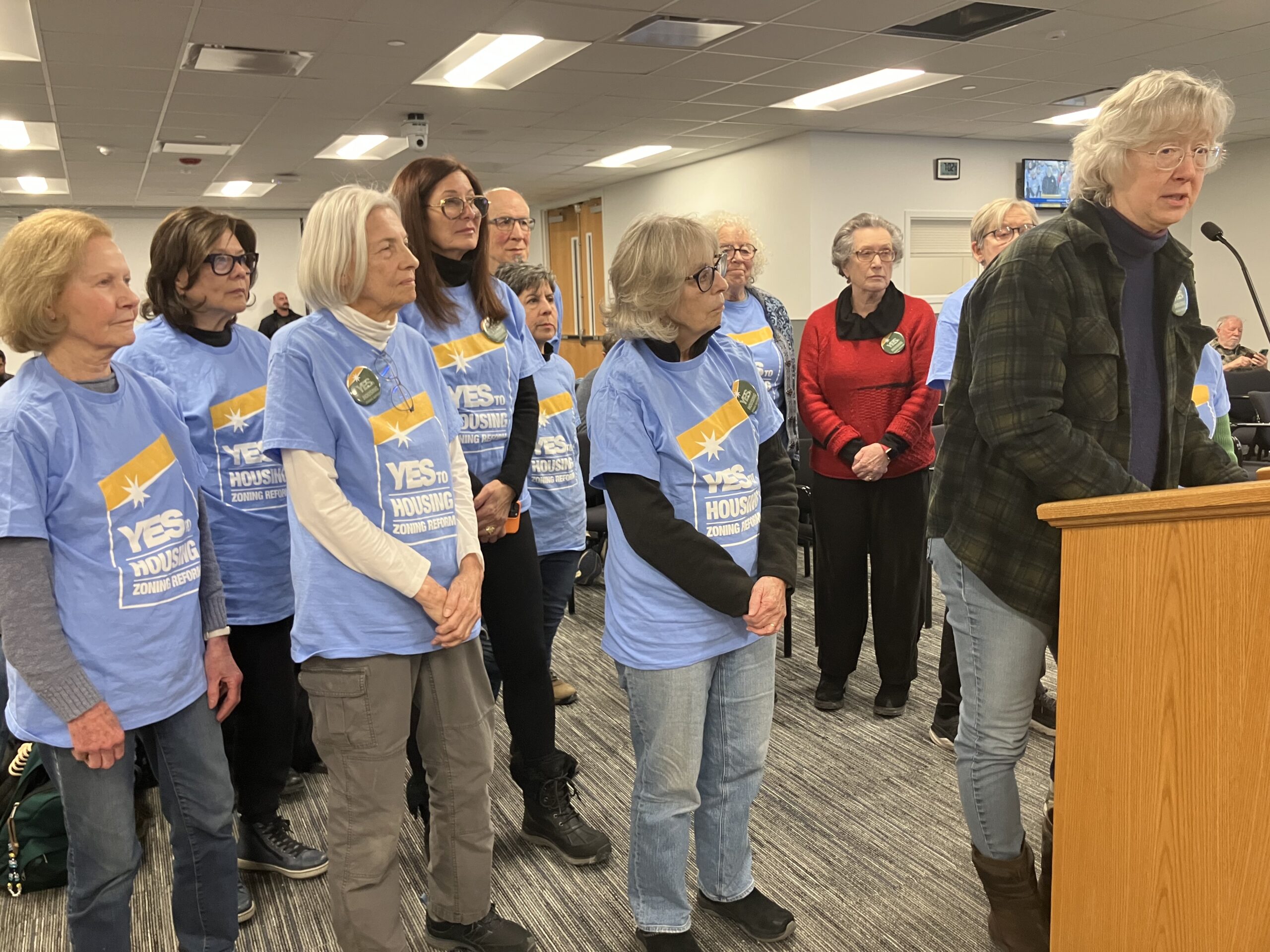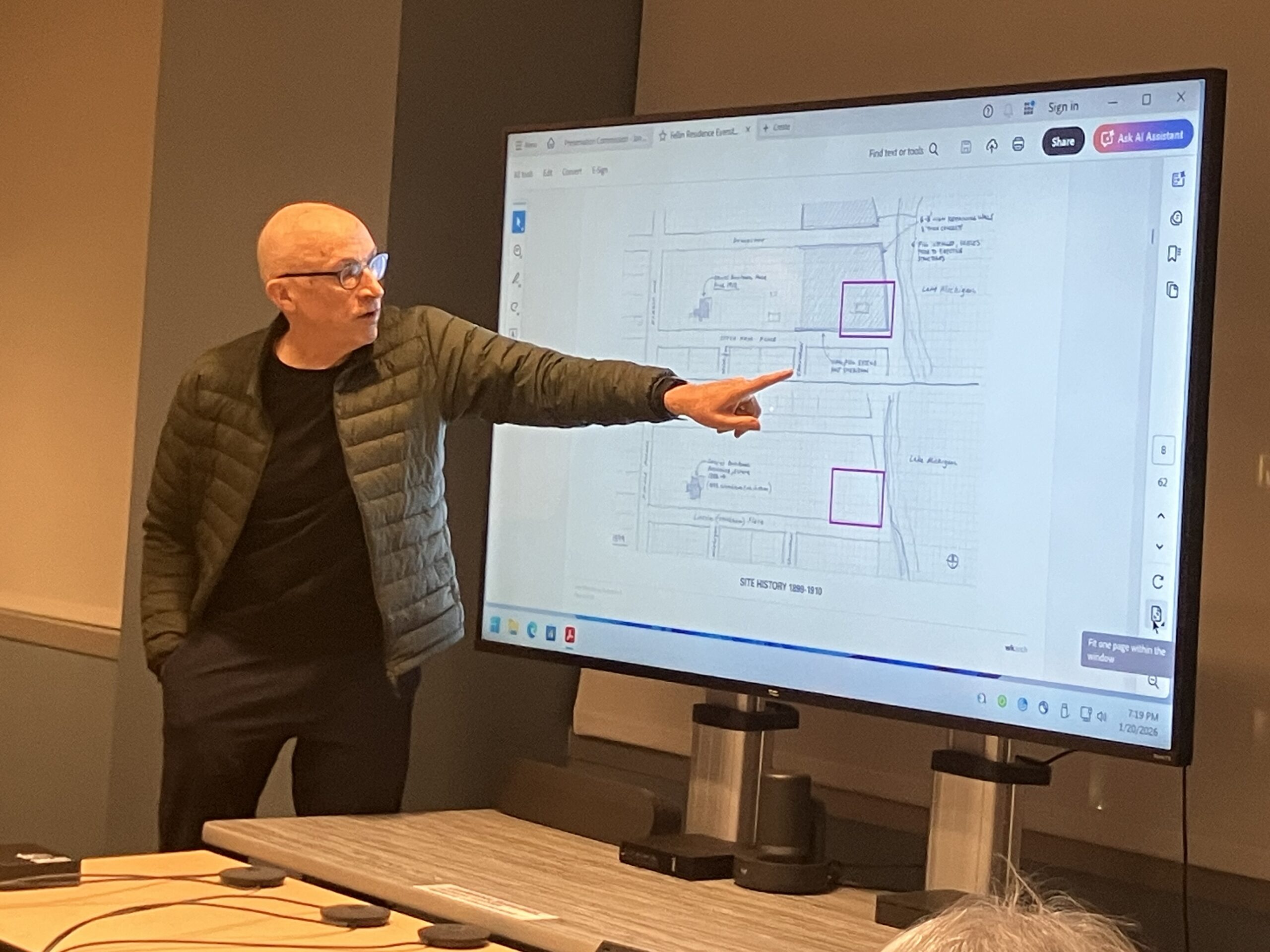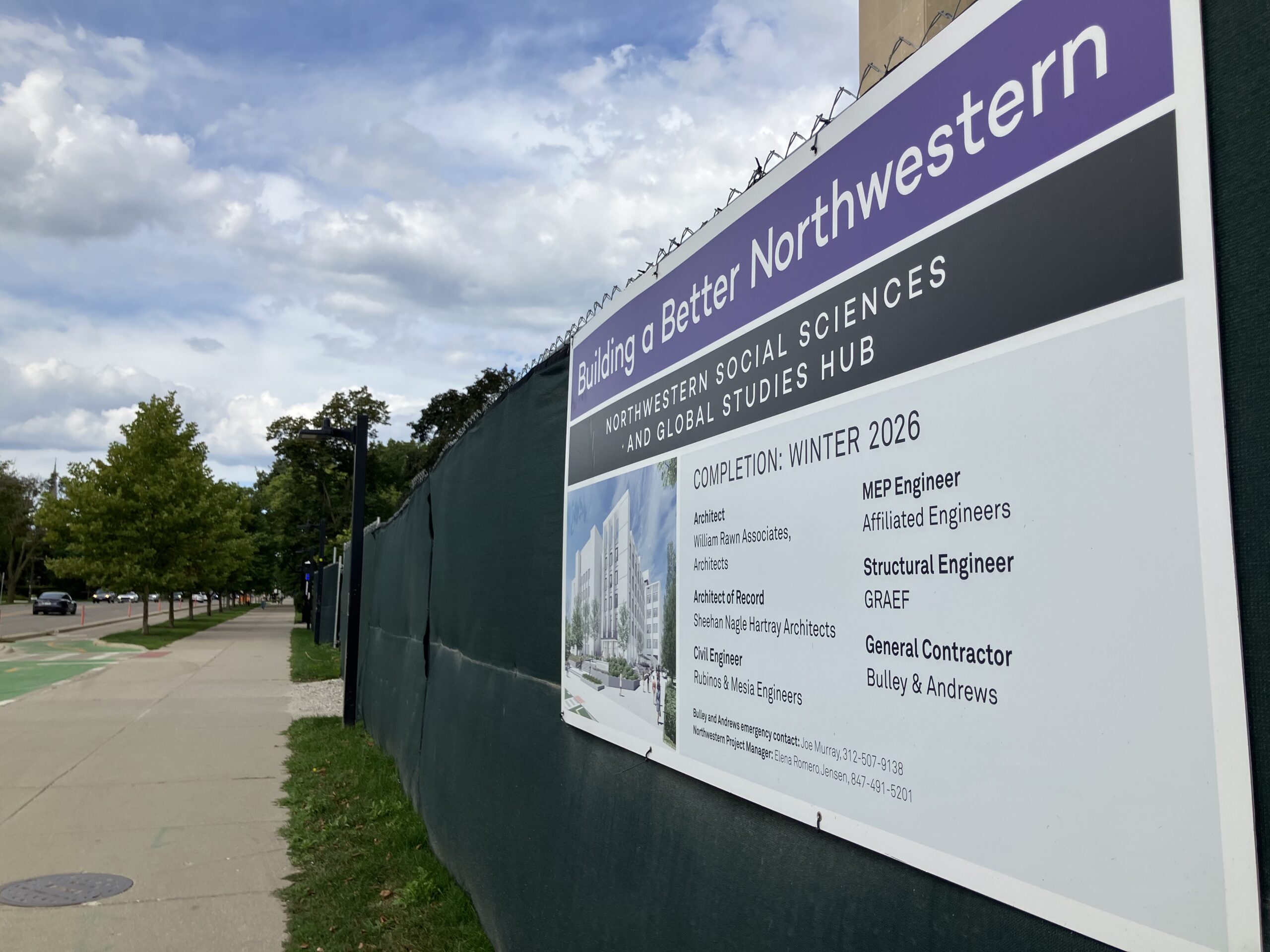By Bob Seidenberg
The city’s budget will be bolstered for at least another year by one-time building permit fees from Northwestern University projects. These fees should allow the city to work with a lower-than-expected deficit.
But even with that help, there are “a number of challenges that we foresee as part of the 2026 budget,” Clayton Black, the city’s deputy chief finance officer, said in a mid-year financial review to the city’s Finance & Budget Committee Tuesday.
Officials are projecting roughly $6.2 million in permit fees from two Northwestern renovation projects.
Work is underway at Donald P. Jacobs Center at 2001 Sheridan Road to transform that building into a social science and global studies hub. Farther north, the university has broken ground on a state-of-the-art facility for the Kellogg School of Management at the former James L. Allen Center site.
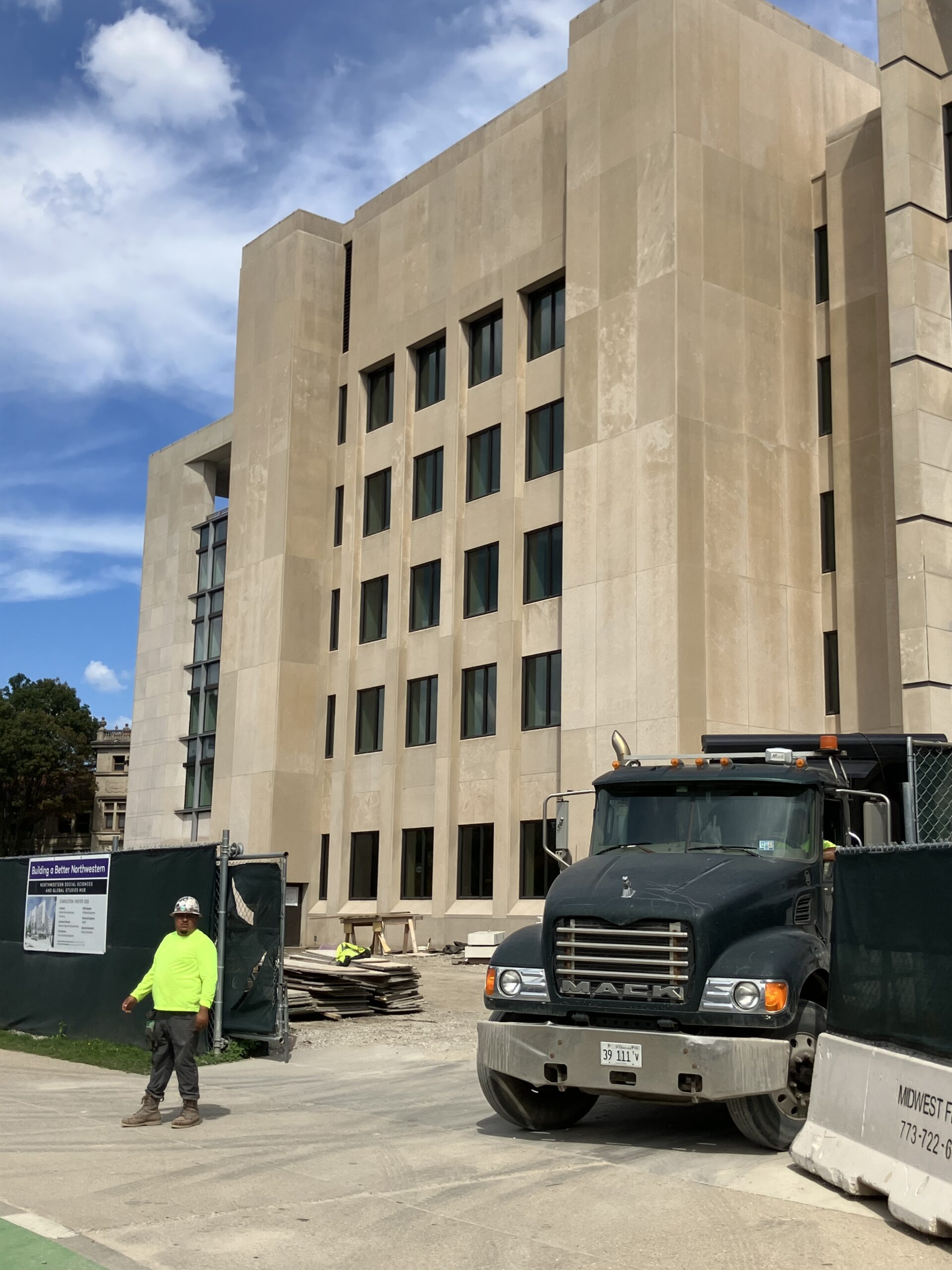
One-time money buys time for ‘difficult decisions’
The Ryan Field rebuild generated around $11 million revenue from one-time permit fee. This was the key element in officials’ closing a deficit of almost that amount projected for the 2025 budget.
NU permit revenue from 2024 and 2025 is included in the city’s fund balance that currently stands at a solid $52 million, which is 34% of the city’s annual expenses. The city’s fund balance policy aims to maintain a minimum reserve of 16.6% of general fund expenses to protect against fiscal emergencies.
“Were it not for the one-time permit revenue from this and the one-time permit revenue from last year,” Black pointed out to the committee, “we would be at $35 million.”
“The city brought in about $17 or $18 million from those permit projects,” he added. “So I can’t emphasize enough just how much those one-time revenues have really distorted our financial picture and allowed us to defer some difficult decisions, including property taxes for five years as well as significant expenses,” he said.
Shari Reiches, chair of the committee, observed, “We don’t get a heads-up that they’re [Northwestern] going to be doing these projects so that we could budget for next year.”
Black responded that in Ryan Field’s case, the issue was still in litigation when the city approved its 2025 budget. “When it comes to these two projects in particular, it’s such a big amount of money that we’re very hesitant until the permit application is filed in order to bank on receiving the [$6.2 million] in revenue.”
He agreed that Reiches raised a valid point. “This year we have reached out to Northwestern and they’ve confirmed they have no major projects planned for 2026, given their current situation, so these two projects really helped us out.”
Real estate transfer taxes up
Along with permit fees, other local revenues on pace to exceed budget include amusement taxes, recreation program fees, parking-ticket fines, investment income and ambulance fees, Black said in his report.
Areas on pace to meet budget expectations include revenues from liquor taxes, motor fuel taxes, natural gas utility taxes and wheel taxes.
Real estate transfer taxes — paid by the seller on the transfer of property — are up 63% compared to 2024 through July of this year, he said.
The transfer tax peaked at $6.2 million in 2021 when credit rates were very low, Black said. It dipped in the last two years, dropping to half that amount last year. It has since perked up and likely to generate around $4.2 million in 2025, he said.
Meanwhile, personal property replacement taxes (PPRT), a tax that has received focus as a source for funding public safety pensions, is down 31% from July a year ago. However the Illinois Municipal League is projecting a 7% increase in that revenue from 2025 to 2026.
Structural deficit remains
Officials had projected a budget deficit at $11 million for 2025. They still expect to finish the year with a deficit, likely somewhere between $7 million and $1.8 million, Black said.
The end-of-the-year fund balance is expected to come in between $42 and $47 million, he said.
With the one-time revenues removed, the city’s General Fund is still in a structural deficit situation, he said.
“The city’s made some big decisions over the last few years without really touching revenues,” he noted. “These include the most recent collective bargaining agreement [20% over four years] and a significant increase in our required public safety funding contributions [approximately $9.6 million in 2025 to keep the city on a path toward 100% funding of public safety pensions by 2040.
“Those two items alone constitute about $30 million in increases to our budget in 2025 since 2021,” Black noted.
During the same period, property taxes have been frozen at 2020 levels despite inflation of 25% since 2020, he pointed out.
As a matter of note, he said, no unbudgeted expenses have come before the city.
Finance & Budget Committee members took city officials to task for lack of notice after the city’s unexpected purchase for $2.6 million of the Little Beans Cafe in 2024 to be converted into a city recreation center.
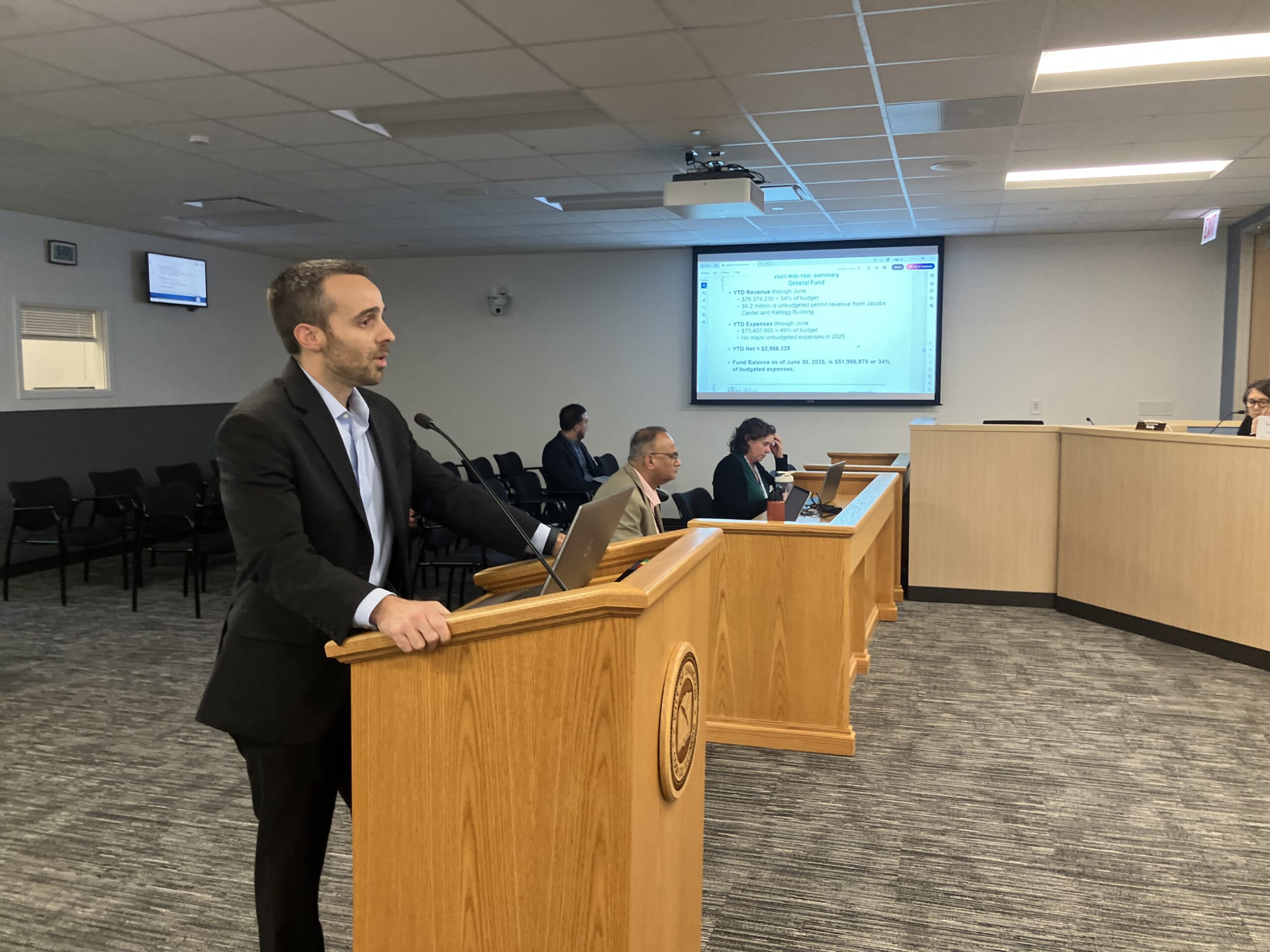
Black’s list of bullet points — or concerns — to be considered heading into the 2026 budget included what to do about property taxes, frozen since 2020 despite 25% inflation; replacement of the state grocery tax; the possible expiration and elimination of federal funding; and establishment of a Parks and Recreation Fund to boost parks support.
No vote yet
Committee members took no vote on the report, which was set for discussion only.
Committee member David Livingston, though, thanked Black for a great summary “to really understand this at the granular sort of level.”
He also expressed appreciation for the lack of big surprises on the downside in the budget.”
Committee member and Council Member Clare Kelly (1st Ward) thanked Black as well. She noted that last year the city closed its deficit in pension contributions by using unbudgeted stadium fee revenue.
Committee member and Council Member Clare Kelly (1st Ward) thanked Black as well. She noted that last year the city closed its deficit in pension contributions by using unbudgeted stadium fee revenue.
“And so now that we have $6.2 million,” she said, “I’m wondering if we should be looking at that as well this year to help close that gap between 90% and 100% funding.”
When Reiches noted that the city is already funding at 100%, Kelly responded that “of course we’re going to fund it 100% but we haven’t figured out how.”
